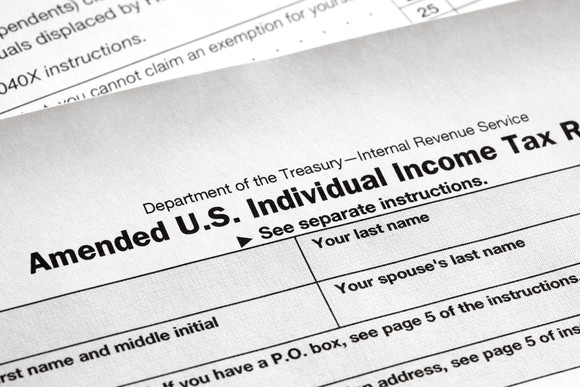 Every year, tens of thousands of Americans discover that they made a mistake on their taxes. This can be nerve-wracking and lead to sleepless nights for those who made a mistake that made them money. For others, however, the mistake was in the IRS’s favor. If you paid too much taxes, you may be tempted to amend your return. However, amending old tax returns is not always the best idea.
Every year, tens of thousands of Americans discover that they made a mistake on their taxes. This can be nerve-wracking and lead to sleepless nights for those who made a mistake that made them money. For others, however, the mistake was in the IRS’s favor. If you paid too much taxes, you may be tempted to amend your return. However, amending old tax returns is not always the best idea.
Timing Matters
If you discovered the mistake immediately after filing, you may be able to correct the problem without amending it. This only counts if you filed before the due date. If you still have time before the due date, you can simply file a new return, along with all of the necessary schedules. This return will then supersede the old, incorrect one. However, this strategy only works if you are still well ahead of the deadline when you catch the mistake.
Attracting the Eye of the IRS: Is Amending Old Tax Returns Ever a Good Idea
There are times when even the wariest citizen may be tempted to file an amendment. If you receive revised paperwork, for example, you may be tempted to file a new return out of principle. In addition, you may later discover a new loophole that entitles you to a larger return.
However, there are good reasons not to file a return. First, you will need to ensure that you have collected all of the paperwork again and go through the entire process again. Because taxes are complicated, you may not actually get a return or have a much different outcomes despite all of your efforts. Last, you will have attracted the eye of the IRS. This is especially true if you file a return asking for an increased amount of refund or a decreased amount of taxes owed. Filing taxes is normal but amending them is less common. Is it really worth sticking out?
Amending old tax returns is not mandatory. If your tax return was completely accurate to your knowledge at the time that you filed it, you have fulfilled your obligation as a citizen and can sleep well at night. The IRS will contact you if they need more information – and, hopefully, they won’t.


